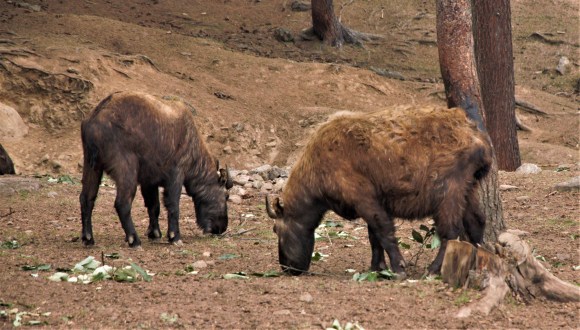Kuzu Sangpola from Bhutan,
Religion and superstition are horses from the same stable, I would contend. Here in Bhutan, almost everyone is Buddhist, following a fairly strict adherence to the teachings and content to play a communal role in protecting the culture from disturbance and unwanted incursions. In any religion, some irrational belief is explained by claiming it to be superstition. But how do we tell the difference?

Apparently, women in Bhutan are taking on more and more roles which were hitherto performed by men. One of these is in the recreational sphere: a sport called khuru which is a bit like outdoor darts with much greater distances between thrower and target and bigger projectiles. Some locals claim that women’s participation in this sport is upsetting the traditional order of things. They suggest that the practice is leading to natural disasters like the increased incidence of forest fires. They make the tenuous link between one event and the other by claiming that “age-old traditions are being disregarded”.
It’s also believed that if women touch a man’s bow and arrow on the eve of a match it will bring bad luck. (Archery is the national sport. We have witnessed a match of both archery and khuru during our stay here and enjoyed the rituals of play.)
prayer flags in Bhutan
I put this idea to some locals who dismiss the belief as “superstition”. The problem with that is that the very same people also claim that prayer flags – which are ubiquitous in Bhutan – bring good luck. This is clearly a religious precept. A blinkered, unquestioning faith in one facilitates the ready acceptance of the other, it seems.
We were also treated to a story – presented as fact – of one particular incarnation of Buddha who materialised on Earth for the first time as an eleven-year old boy on a rock in a lake. Farmers here also believe that good snowfalls during winter will lead to good rains during the growing season.
weather forecasts – science or religion?
What’s the connection? Do weather forecasts rely on science or religion? Today, we awoke to overcast skies. We had already determined the night before to try a long trek across the mountains. We needed to travel quite a distance to reach the starting point. At the roadside we met a yak herder who gave us some assurances about the proposed route.
The yak herder laughed with a betel nut smile when we showed a determination to hike through the pass. But he walked with us for a while nevertheless. Just as we reached the point of no return, we all heard a barking deer from way up in the hills. The yak herder laughed a different sort of laugh when he explained that the barking deer’s call was believed to mean “it will rain”. Is that superstitious?
The barking deer was proved to be right and the rain soon became snow. Soon afterwards, it became heavy. It was at about this time that at least one of the party began to question the wisdom of the outing.

This was an adventure which a less charitable companion might count in the long list of Linda’s hare-brained schemes. I hereby admit to inadvertently uttering such a thought at one stage but of course Linda merely smiled her benign smile and proffered the streaker’s defence, as she always does. And, of course, all was well.

The walk over the mountain and down the other side did yield some memorable moments and some incomparable photographs. We got to see Bhutan ‘s national flower (a blue poppy which grows at ground level) and saw some precarious monasteries on the sheer cliff faces. They really do pick some inaccessible spots for their retreats.
yaks in Bhutan
We also shared the treeless slopes (late in the walk) with numerous yaks, which appear to be a more hirsute relative of the cow, with similar eating habits and the same droppings. We were also treated to some rare bird sightings.
luncheon like no other
Nearing the end of the walk we “took rest” (a common expression round these parts) and partook of a sumptuous meal with cutlery, plates and hot water. We had selected a grassy spot at roadside for lunch. The multi-storey tiffin revealed a choice of mushrooms in cheese and butter sauce, chicken, an edible fern which Linda is raving about, paneer and vegetables and the obligatory rice (“It is compulsory.”). The fare was a couple of notches above the muesli bar and squashed banana which usually tumbles out of one’s backpack on such occasions.
The weather prediction from the barking deer doesn’t qualify as either religion or superstition. It’s obviously not about scientific cause and effect but it is ostensibly based more on evidence than belief in a supernatural being. But religion obviously plays a big part in the culture here, and extricating religion from superstition is an interesting challenge.
Tashi delek from Bhutan
Greg
Other photos from hereabouts













